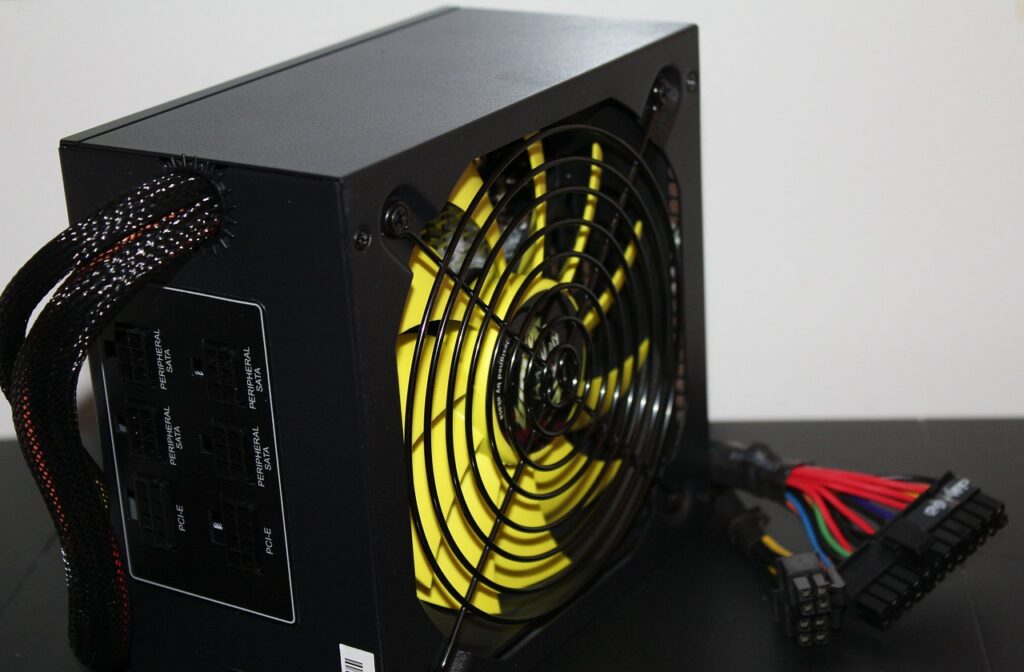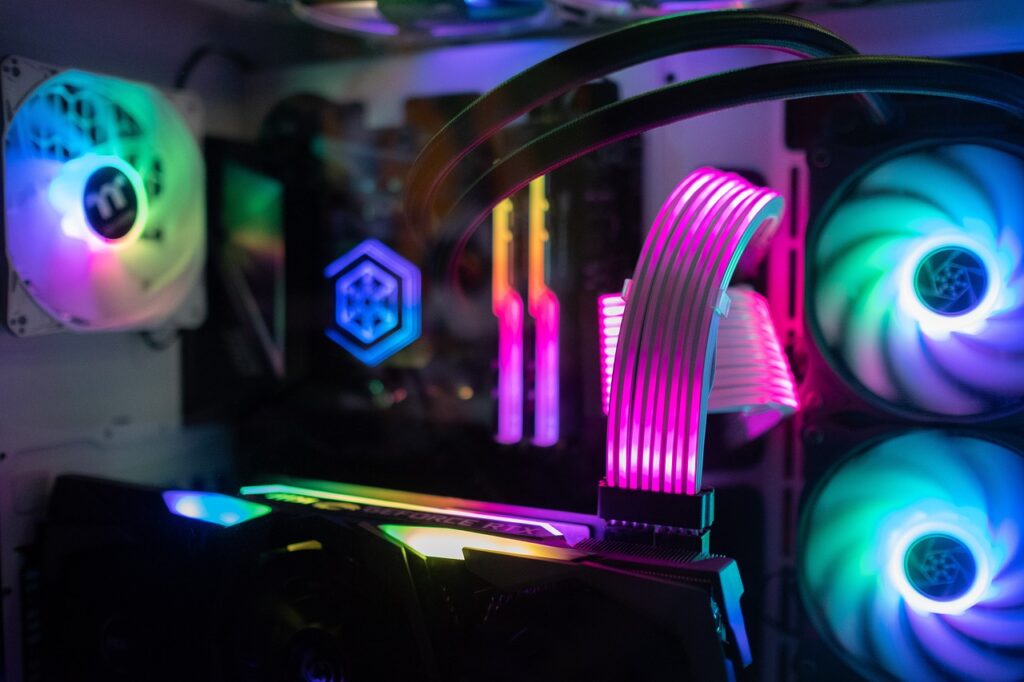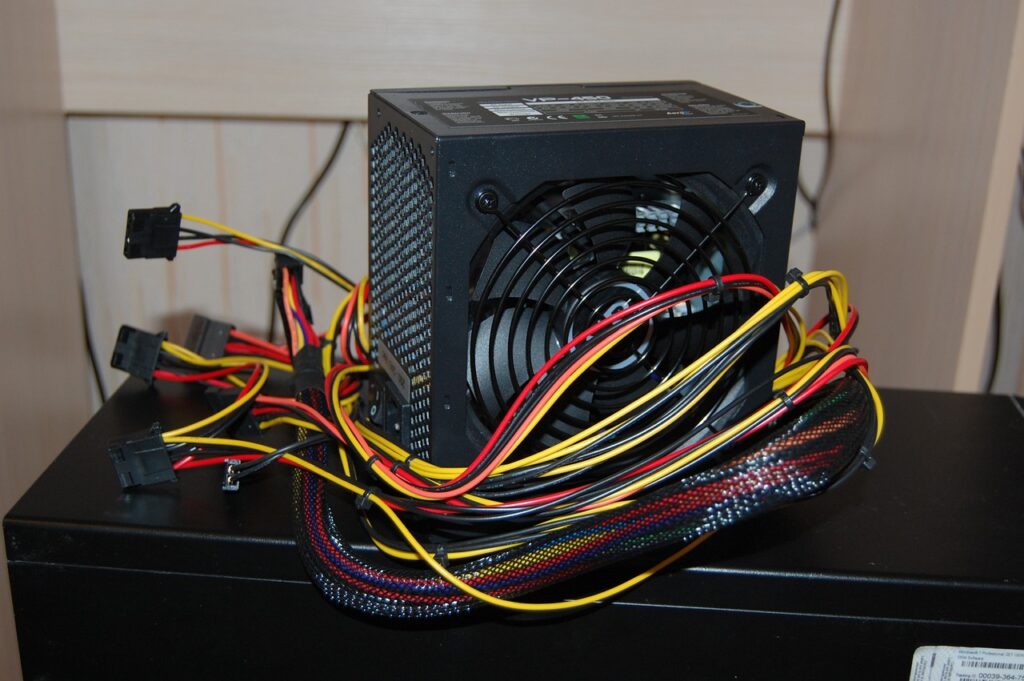Understanding the power consumption of a gaming PC is crucial for several reasons. It can help you save money on your electricity bill, reduce environmental impact, and choose the right power supply for your system. In this blog post, we will explain what PC power consumption is, how to measure it, and how to optimize it for your gaming PC.
Table of Contents
Understanding Power Consumption
Energy consumption is measured in Watts which is a unit of power that indicates how much energy a device uses per second. A kilowatt-hour is a unit of energy that indicates how much energy a device uses in one hour.
For example, if your gaming PC uses 500 W of power, it means that it consumes 500 joules of energy every second. If you run your gaming PC for one hour, it will consume 500 W x 1 hour = 500 Wh or 0.5 kWh of energy.
To calculate the power consumption of your gaming PC in watts, you need to know the power rating of each component in your system. The power rating is usually given by the manufacturer as the thermal design power (TDP) or the maximum power draw (MPD). The TDP or MPD indicates the maximum amount of heat that a component can generate under normal operating conditions.
However, these values are not always accurate or consistent across different manufacturers and applications. Therefore, the best way to measure the actual power consumption of your gaming PC is by using a power meter like the Kill-A-Watt P3 P4400. This device plugs into the wall outlet and measures the power draw of your gaming PC directly from the wall.
To calculate the energy consumption of your gaming PC in kWh, you need to multiply the power consumption in watts by the time of usage in hours. For example, if your gaming PC uses 500 W of power and you run it for two hours per day, it will consume 500 W x 2 hours = 1000 Wh or 1 kWh of energy per day.
Average Power Consumption of a Gaming PC
The power consumption of a gaming PC depends on several factors, such as the components, settings, usage patterns, and ambient temperature. Generally, the more powerful and demanding your components are, the more energy they will consume. The main components that affect the power consumption of a gaming PC are:
-
-
- CPU: The central processing unit (CPU) is the brain of your gaming PC. It performs various calculations and instructions for running games and other applications. The power consumption of a CPU depends on its model, speed, cores, threads, voltage, and workload. For example, an AMD Ryzen 9 5950X has a TDP of 105 W, while an Intel Core i5-11400 has a TDP of 65 W.
- GPU: The graphics processing unit (GPU) is the heart of your gaming PC. It renders the graphics and effects for games and other applications. The power consumption of a GPU depends on its model, architecture, clock speed, memory size, voltage, and workload. For example, an Nvidia GeForce RTX 3090 has an MPD of 350 W, while an Nvidia GeForce GTX 1650 Super has an MPD of 100 W.
- RAM: The random access memory (RAM) is the short-term memory of your gaming PC. It stores data and instructions for quick access by the CPU and GPU. The power consumption of RAM depends on its type, speed, capacity, voltage, and usage. For example, DDR4 RAM consumes less power than DDR3 RAM.
- Storage: The storage devices are the long-term memory of your gaming PC. They store data and programs for permanent access by the CPU and GPU. The power consumption of storage devices depends on their type, speed, capacity, and usage. For example, solid-state drives (SSDs) consume less power than hard disk drives (HDDs).
- Fans: The fans are the cooling system of your gaming PC. They circulate air to dissipate heat from the components and prevent overheating. The power consumption of fans depends on their size, speed, number, and usage. For example, larger fans consume more power than smaller fans.
-
According to Outervision’s power supply calculator, a high-end gaming PC with the components listed above would use about 1000 W of power, a mid-range gaming PC would use about 550 W of power, and a low-tier gaming PC would use about 250 W of power. These are approximate values that may vary depending on the actual usage and settings of your gaming PC. Furthermore, we have analyzed these numbers in detail in another blog post.

To put these numbers into perspective, let’s compare them with some common household appliances. According to Ecoenergygeek, a gaming PC uses more power than a refrigerator (150 W), a microwave oven (1200 W), a washing machine (500 W), or a TV (100 W). However, a gaming PC uses less power than an air conditioner (1500 W), a hair dryer (1800 W), or an electric kettle (2000 W). Of course, these appliances are not used for the same amount of time as a gaming PC, so their energy consumption in kWh may differ.
Impact of Power Consumption
The power consumption of your gaming PC has several impacts on your wallet, your environment, and your system. Here are some of them:
- Cost of running a gaming PC: The cost of running a gaming PC depends on the electricity price in your area and the time of usage. For example, if you live in the US and pay the national average of $0.14 per kWh, and you run your gaming PC for two hours per day, it will cost you about $0.28 per day for a high-end gaming PC, $0.15 per day for a mid-range gaming PC, and $0.07 per day for a low-tier gaming PC. This translates to about $8.40 per month for a high-end gaming PC, $4.50 per month for a mid-range gaming PC, and $2.10 per month for a low-tier gaming PC. These costs may seem small, but they can add up over time and affect your budget.

- Environmental impact of excessive energy consumption: The energy consumption of your gaming PC also affects the environment by contributing to greenhouse gas emissions and climate change. According to Computer Info Bits, a gaming PC emits about 1.5 kg of CO2 per kWh of energy consumed. These emissions may seem small, but they can have a significant impact on the environment over time and affect your carbon footprint.
- Strategies to reduce energy consumption in gaming PCs: The good news is that there are several ways to reduce the energy consumption of your gaming PC without compromising its performance or quality. Here are some of them:
- Choose energy-efficient components: When building or upgrading your gaming PC, look for components that have lower power ratings or higher efficiency ratings. For example, choose an SSD over an HDD, choose DDR4 RAM over DDR3 RAM, choose an AMD Ryzen CPU over an Intel Core CPU, or choose an Nvidia GeForce RTX GPU over an AMD Radeon RX GPU.
- Adjust your settings: When playing games or using other applications on your gaming PC, adjust your settings to optimize your power usage. For example, lower your screen brightness, resolution, or refresh rate; disable unnecessary features or effects; or enable power-saving modes or features.
- Monitor your power consumption: When using your gaming PC, monitor your power consumption by using a power meter or software tools like HWMonitor or MSI Afterburner. This will help you identify any spikes or anomalies in your power usage and troubleshoot any issues or problems.
- Turn off or sleep your gaming PC when not in use: When you are done using your gaming PC, turn it off or put it to sleep mode instead of leaving it on idle or standby mode. This will save you a lot of energy and money in the long run
Final Words…
Power consumption is an important aspect of owning and using a gaming PC. It affects your electricity bill, your environmental impact, and your system performance and stability. By understanding what power consumption is, how to measure it, and how to optimize it, you can enjoy your gaming PC without worrying about its energy usage. We hope this blog post has helped you learn more about gaming PC power consumption and how to manage it effectively. Happy gaming!

